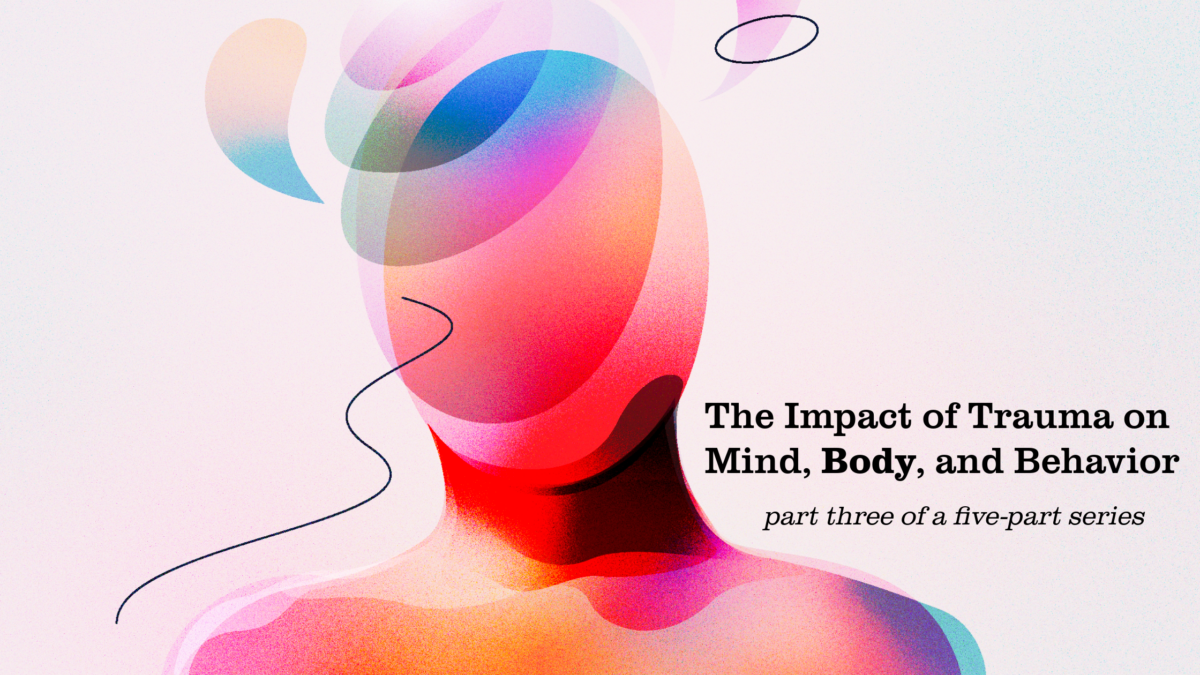Welcome to part three of a 5-part series about trauma and it’s impact on mind, body, and behavior. Prior parts in the series can be found here: https://www.mopip.org/blog/category/impact-of-trauma/
The Body: Physical Effects of Trauma
Trauma does not only live in the mind, it can also leave deep imprints on the body. The physiological effects of trauma can manifest immediately or years after the event, impacting everything from the nervous system to immune function.
How Does Trauma Affect the Nervous System?
Traumatic experiences activate the body’s innate survival mechanisms, commonly referred to as the fight, flight, or freeze response. While this response is crucial in moments of danger, repeated or prolonged activation due to trauma can dysregulate the autonomic nervous system, the division of the nervous system responsible for controlling involuntary bodily functions, such as heart rate, blood pressure, and sweating⁸. This leaves individuals in a persistent state of hyperarousal or shutdown, even in safe environments⁸. Brain regions such as the amygdala, involved in fear response, the hippocampus, involved in memory, and the prefrontal cortex, involved in reasoning and impulse control, are all impacted by trauma, contributing to issues such as heightened startle responses, emotional reactivity, and difficulties with focus and memory⁸.
What Happens to the Body’s Stress Hormones After Trauma?
Trauma alters the functioning of what is called the hypothalamic-pituitary-adrenal (HPA) axis, one of the bodily systems responsible for managing stress⁸. When dysregulated, the body may produce excessive, or insufficient, amounts of cortisol, which is the body’s primary stress hormone⁸. Over time, this can lead to fatigue, sleep disturbances, digestive problems, weight gain or loss, and musculoskeletal conditions⁹.
Can Trauma Weaken the Immune System?
Yes. Chronic stress caused by unresolved trauma or other psychological difficulties can suppress immune function, making individuals more vulnerable to illnesses and infections¹⁰. Studies show that trauma survivors often have increased markers of inflammation and are more likely to suffer from autoimmune diseases and chronic conditions, such as rheumatoid arthritis, irritable bowel syndrome (IBS), and cardiovascular problems¹¹.

Stay tuned for the next post in this series about the impact of trauma!
Published August 12, 2025. By Gavin C. Newberry, MPH, Data Analyst for Missouri Partners in Prevention.
References
8. Sherin, J. E., & Nemeroff, C. B. (2011). Post-traumatic stress disorder: The neurobiological impact of psychological trauma. Dialogues in Clinical Neuroscience, 13(3), 263–278. https://doi.org/10.31887/DCNS.2011.13.2/jsherin
9. American Psychological Association. (2024). Stress effects on the body. https://www.apa.org/topics/stress/body
10. Dhabhar F. S. (2014). Effects of stress on immune function: the good, the bad, and the beautiful. Immunologic Research, 58(2-3), 193–210. https://doi.org/10.1007/s12026-014-8517-0
11. Sun, Y., Qu, Y., & Zhu, J. (2021). The relationship between inflammation and post-traumatic stress disorder. Frontiers in Psychiatry, 12, 707543. https://doi.org/10.3389/fpsyt.2021.707543
